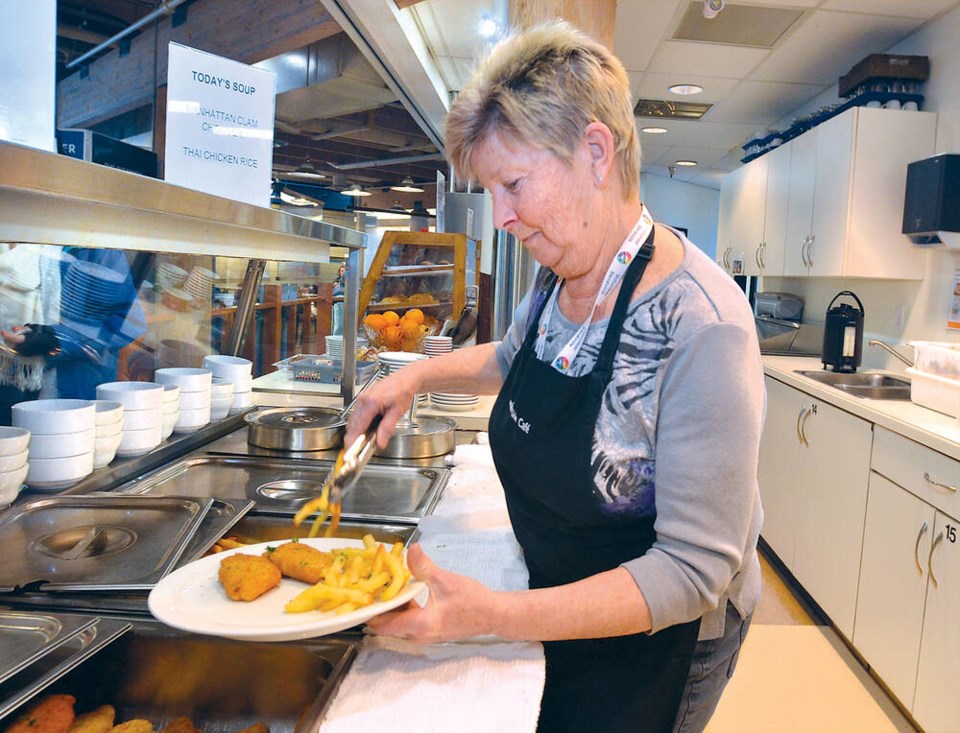When his kids were younger, West Vancouver’s Jimmy Yee said he never really thought about what it would be like to be old.
But more than three years of volunteering with West Vancouver’s Seniors Activity Centre has left him more reflective about what it might be like to have trouble getting around, to look forward to seeing a friendly face or to need help with basics like cooking a nutritious meal.
Since the COVID-19 pandemic struck in 2020, Yee has been among 40 volunteers who either deliver meals to low-income seniors in need several times a week, or who help older residents navigate through government applications online or find out who to call for help with everything from finding housing to booking medical appointments.
“It’s difficult when you’re old and you need help to do things,” said Yee. “It made me think a little more.”
While West Vancouver has a reputation for affluence, that’s not universally the case.
It was during the pandemic that staff running programs at the seniors centre first realized how many vulnerable seniors relied on their help, said Alison Gelz, senior manager of community services for the District of West Vancouver.
“We quickly realized when our doors closed there was a need to support our most vulnerable population,” she said.
Feed the Need is the flagship program run out of the seniors centre that provides three meals a week delivered to low-income seniors by volunteers. The meals are the same ones cooked in the senior centre’s kitchen, which are then packaged for delivery.
In many cases, seniors with smaller appetites have found they can split the portions to make them last over two days, said Gelz.
Most of those receiving the help live in housing subsidized by BC Housing and make very little income through their government pensions. Most also live alone.
In some cases, health problems have prevented the seniors from being able to cook for themselves. In other cases, the person might not have a stove.
“We’ve supported people with providing microwaves,” when needed, adds Gelz.
An added benefit has been the social connection that the volunteers bring when they show up at the door.
“They see a friendly face and have a conversation,” said Gelz.
When it started, Feed the Need provided meals to about 350 people a week. Once COVID faded into the background and seniors felt safe going out, that number fell. In 2021, the program also brought in a means test to ensure the help was being targeted to the most vulnerable seniors.
Currently the program provides help for about 100 seniors and costs about $140,000 annually.
Since 2020, the seniors centre has run annual fundraising drives for donations to support the program, raising up to $100,000 and receiving matching help from the West Vancouver Community Foundation.
On Friday, MP Patrick Weiler announced the federal government will provide $732,000 over two years to the District of West Vancouver to support programs, including Feed the Need, aimed at helping seniors.
Funding will also go to West Van’s community navigators program, which provides peer support to seniors who need help navigating health care, housing applications and other government services. The program also provides volunteers willing to give rides to medical appointments, as well as check-in calls and visits.
That program also began in 2020, when after the COVID lockdown began, staff at the seniors centre “phoned every single member in our database over the age of 65 to check in,” said Gelz. “That’s when we realized those needs were in existence.”
Because the seniors centre tends to be a hub of activity for retired folk, it’s often a first stop when people need help, she said.
“A lot of our seniors aren't computer literate or they don’t even have computers,” she added – a challenge when many government services and applications for help are online.
Volunteers aren’t social workers, she stressed, but they do get training to help them know how best to interact with people needing help – and how to refer them to other resources when required.
A final program run by the seniors centre is the “snow angels” program, which matches fit and willing volunteers who will shovel a senior’s sidewalk in the event of snow. Even simple help like that can make a big difference between a senior being housebound during bad weather and being able to get out and about, said Gelz.
The funding, celebrated with an event that brought political leaders and volunteers together at the seniors centre Friday, covers a two-year period from Dec. 11, 2023 to Dec. 31, 2025.
Money will be used to buy food, capital equipment associated with the programs and the costs of volunteer training.




